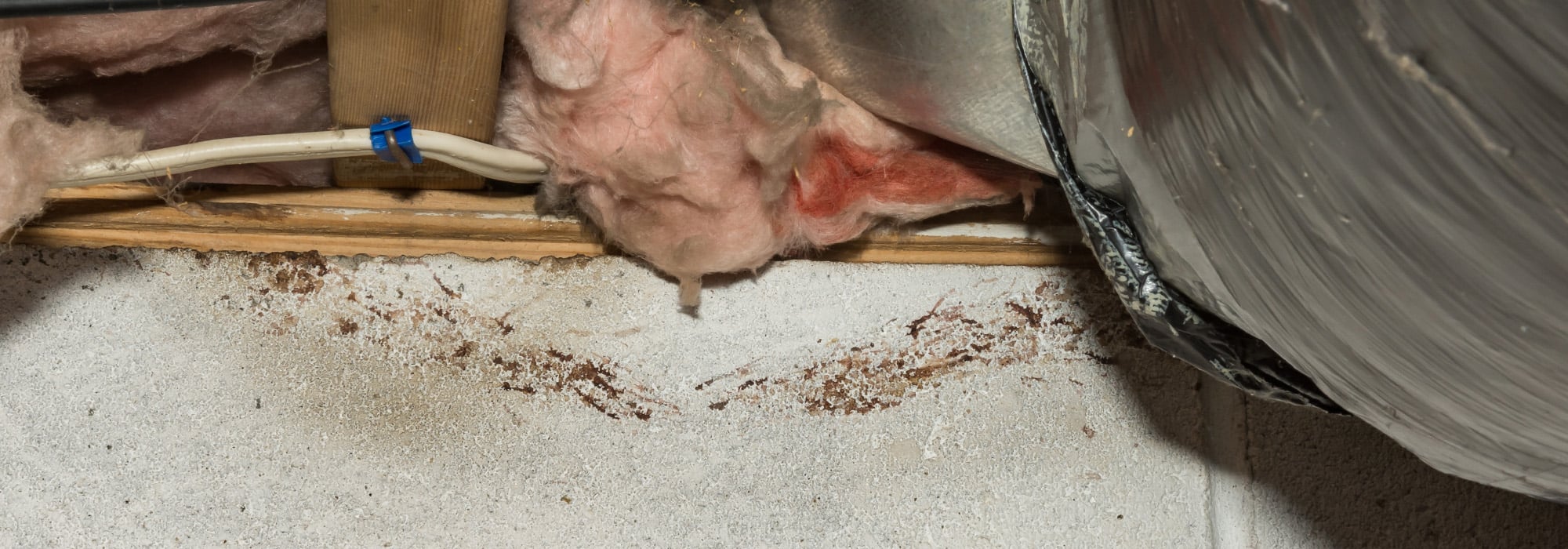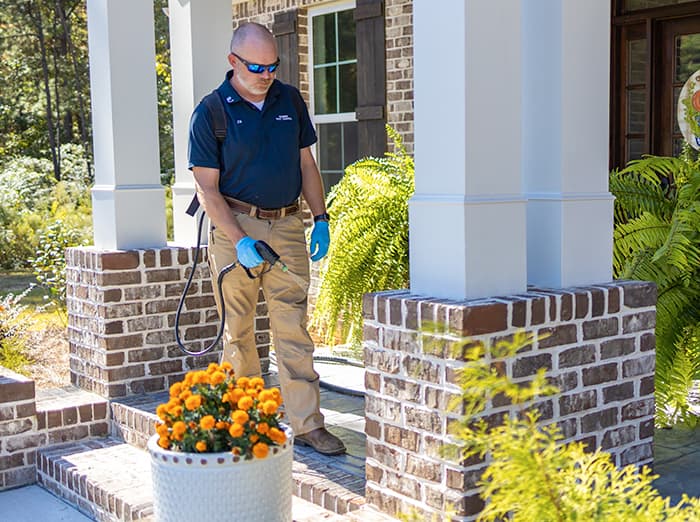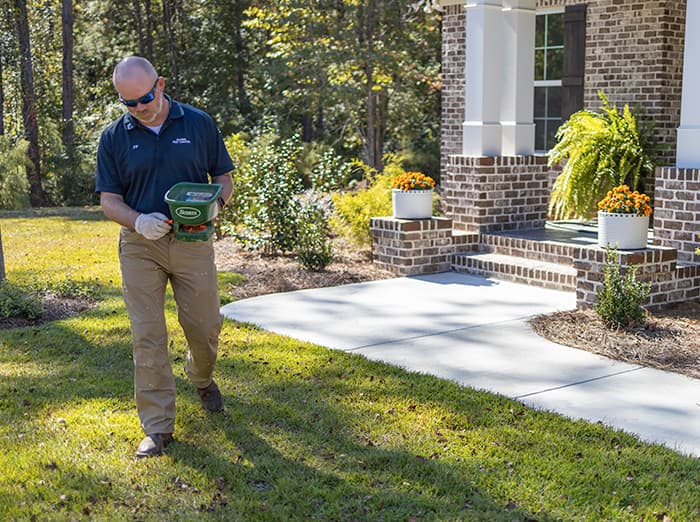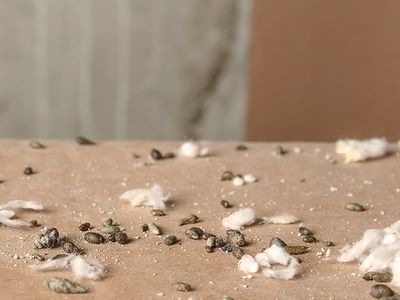Rodents are a common problem for homeowners in South Carolina, especially during the cooler months when they seek warmth and shelter indoors. House mice, Norway rats, and roof rats are the most frequent intruders, and they can cause significant damage to homes in the Pee Dee and Grand Strand areas, as well as pose health risks to the families that dwell within. The key to effective rodent control is spotting the signs early before the problem grows. In this article, our locally owned and family-operated pest control company will walk you through the signs of rodent activity, focusing on house mice, Norway rats, and roof rats, so you can act quickly and protect your property.
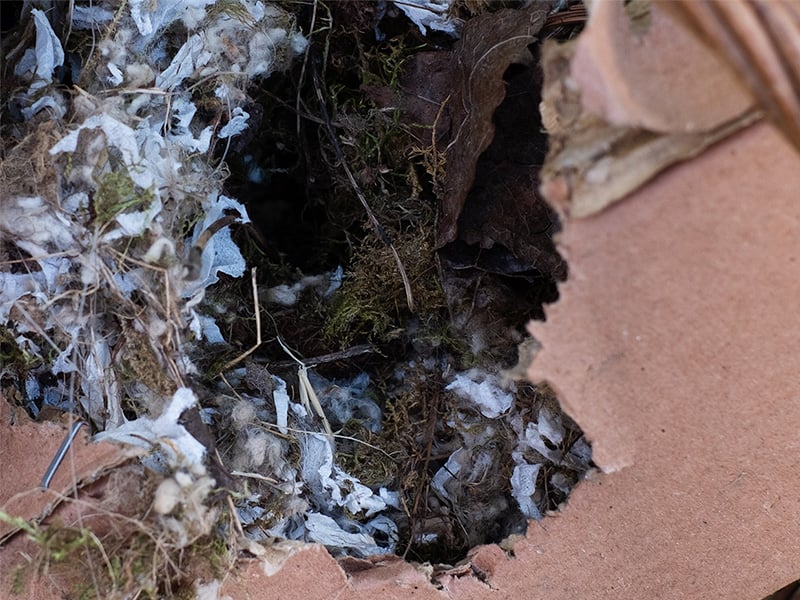
Common signs of rodents in your home
Droppings
- House Mice: Small, black, cylindrical droppings about the size of a grain of rice (3-6 mm long).
- Norway Rats: Larger droppings, around 12-18 mm in length, and usually pointed at one end.
- Roof Rats: Droppings are similar in size and appearance to Norway rats but slightly smaller, around 8-12 mm long. Their droppings are dark and moist when fresh.
Rodent droppings are often found near food sources, nesting areas, and along their travel paths, such as behind appliances, in basements, or along baseboards.
Gnaw Marks
Mice and rats constantly gnaw to keep their teeth sharp and trim. Look for:
- Mice: Gnaw marks on food packages, baseboards, or electrical wires. Their small teeth make tiny, clean marks.
- Norway Rats: Larger gnaw marks, often on wood, plastic, or even concrete. They can chew through a variety of materials, including wires, pipes, and insulation.
- Roof Rats: Similar gnawing habits to Norway rats, but they prefer higher areas like rafters, walls, or ceilings. Look for marks on beams, insulation, and cables.
Tracks and Rub Marks
Rodents are dirty and greasy animals and, as such, leave tracks and marks when they move around. If you suspect a rodent problem, look for small footprints along baseboards, counters, or storage areas. If the tracks are fresh, they may be accompanied by a trail of droppings. There may also be larger, distinct rat tracks in dusty or dirty areas. Rodents often leave behind grease marks on walls or floors as they travel along the same paths.
Noises
Both mice and rats are nocturnal, so you’re most likely to hear them during the night when they’re most active.
- House Mice: Soft scratching, scurrying, or squeaking sounds in walls or ceilings.
- Norway Rats: Loud scratching, gnawing, or rustling sounds, often heard in basements, walls, or crawl spaces.
- Roof Rats: Scratching or scampering sounds above ceilings, in attics, or along rafters.
Nests and Burrows
Rodents build nests out of shredded materials, such as paper, insulation, fabric, and even food wrappers. They may also bring twigs, grass, and other organic material indoors to pad their nests. You may find rodent nests in hidden spots like:
- House Mice: Nests made from soft materials, often in corners of rooms, behind furniture and appliances, or in attics.
- Norway Rats: Larger burrows are typically found near your home's foundation or under sheds. These burrows are often deep and covered with debris. Indoors, they typically nest in basements, crawl spaces, behind walls, underneath sinks and cabinets, and other ground-level areas. Although they prefer lower levels, these rats will nest in attics, too.
- Roof Rats: Nests in high areas such as attics, rafters, or tree branches. They may also nest in piles of leaves or debris in your yard.
Odors
An infestation of rodents often leads to a musty or unpleasant odor due to their urine and droppings. You might have a rodent infestation if you detect a strong, pungent smell in certain areas of your home or persistent odors in places where rodents have nested or traveled. The smell can become overwhelming as their urine marks areas they frequently visit, and these odors can linger even after the rodents have been removed. Odors can also come from dead rodents in walls or other hidden areas. The smell is often described as foul, musty, or putrid, and it can linger for a while as the rodent decomposes.
House mice
Mice typically enter homes through small cracks and gaps in foundations, doors, or windows. They tend to nest in areas like attics, basements, or even behind kitchen appliances. House mice are curious and prefer areas that are easy to access, such as pantries, cabinets, and food storage areas.
Norway rats
Norway rats tend to burrow around foundations, under sheds, or in crawl spaces and may be seen rummaging through trash cans or food containers. Unlike house mice, Norway rats are excellent swimmers and may travel through pipes and drains. They often enter houses through broken vents and crawl space doors, gaps around pipes, and damaged plumbing.
Roof rats
Roof rats are more common in coastal areas and warmer parts of South Carolina. They are skilled climbers and prefer nesting in higher areas like attics or trees. Roof rats are more likely to be active in areas with abundant vegetation. In South Carolina, they are more prevalent in rural or suburban neighborhoods where trees, power lines, and shrubs provide easy access to rooftops. Roof rats are known to chew on electrical wires and insulation, which can lead to dangerous fires if not addressed quickly.
What to do if you notice signs of rodents
If you suspect you have a rodent problem, it’s important to act as soon as possible. While you might be tempted to set a few traps or lay down some poison, DIY rodent control often fails for several reasons. Here’s why:
- While traps can catch a few rodents, they don’t eliminate the entire infestation. Mice and rats breed quickly, so even if you catch a few, others may remain hidden and continue to reproduce.
- You might not set enough traps or put them in the right spots. Although mice are curious, they become wary of traps after seeing others caught. What’s more, neither mice nor rats are likely to go near a trap that is set out in the open – correct placement is crucial.
- Poisons don’t often kill rodents immediately, meaning they may go off and die in hard-to-reach places, causing those unpleasant odors we touched on above.
- Rodent poison can also be a risk to children and pets if accidentally ingested.
Perhaps the most important takeaway is that DIY rodent treatments do not address the root cause of an infestation. At best, they are a temporary fix, not a long-term solution. To eliminate rodents from your home, you need a solution that addresses the rodent population as well as the contributing factors to an infestation.
Contact Harris Pest Control for effective rodent control today!
For the best rodent control in Florence, Myrtle Beach, and other communities in the Pee Dee and Grand Strand areas, Harris Pest Control is the local pest control company to call! In business since 1973, our highly trained and fully licensed pest control specialists know exactly how to exterminate mice and rats and prevent them from re-infesting.
Our rodent control services start with a free rodent inspection to identify the species, locate entry points, and determine other conducive conditions. Based on our findings, we’ll develop and implement a customized treatment plan that may include:
- Trapping
- Baiting
- Installing exterior rodent stations
- Rodent exclusion
Moreover, when you sign up for our rodent control, we’ll guarantee our service for 30 days. If, during that time, you see rodents or signs of rodents in your home, we’ll come back out at no additional cost!
Sign up for ongoing home pest control for greater protection
In addition to our stand-alone rodent control, Harris Pest Control offers quarterly home pest control services that target mice, rats, and other house-infesting pests. Check out our Quarterly Pest Control plan below, or call us to discuss your rodent problem!
Introductory Program
Home Pest Control
Our home pest control plan may be the ideal fit for homeowners looking for general pest control for common house-infesting pests all year long. It includes an initial service to resolve existing pest problems and ongoing services that keep bugs and rodents away!
- Year-Round Pest Control
- 100% Satisfaction Guarantee
- Covers 20+ Pests
- Preventative Pest Maintenance
- Exterior Perimeter Pest Treatment
- Exterior Spider De-webbing (up to 15')
- Indoor Treatments (As needed or upon request)
- Fire Ant Control (within 25' of your home)
Starting at:
$3900A Month
Free Inspection Or Call (843) 665-4325

Pests Covered & Additional Details
Pests Covered: American Cockroaches, Carpenter Ants, Centipedes, Crickets, Earwigs, Fire Ants (within 25' of the house), German Cockroaches, House Flies, Lady Bugs, Mice, Millipedes, Nuisance Ants, Oriental Cockroaches, Rats, Silverfish, Spider Mites, Spiders, Stored Product Pests, Wasps
- Pricing does not include initial fee
- Excludes coverage for termites, fleas, mosquitoes, ticks, bed bugs, and other pests not specifically listed above. Services for any of these pests are available at an additional charge.
How to prevent rodent infestations
- Seal entry points
Look for cracks, gaps, or holes around doors, windows, and the foundation. Seal any openings, especially near crawl spaces, utility pipes, and vents. - Eliminate food sources
Keep food stored in airtight containers and clean up crumbs or spills right away. Don’t leave pet food or garbage out overnight. - Remove clutter
Rodents love to hide in piles of paper, clothes, or unused items. Decluttering your home reduces their hiding spots. - Eliminate moisture
Moisture plays a significant role in attracting mice and rats, as they need water to survive. Fix leaks immediately, ensure gutters and downspouts are working properly, and address the damp crawl space and other areas where moisture is prevalent.
Rodents like house mice, Norway rats, and roof rats can cause significant problems if left unchecked. However, recognizing the signs early can help you take control before a minor issue becomes a major infestation. Regularly inspecting your home for droppings, gnaw marks, noises, and other signs can protect your property from potential damage and health risks. If you spot any of these signs in your home, contact Harris Pest Control for assistance!
Get Started Today!

